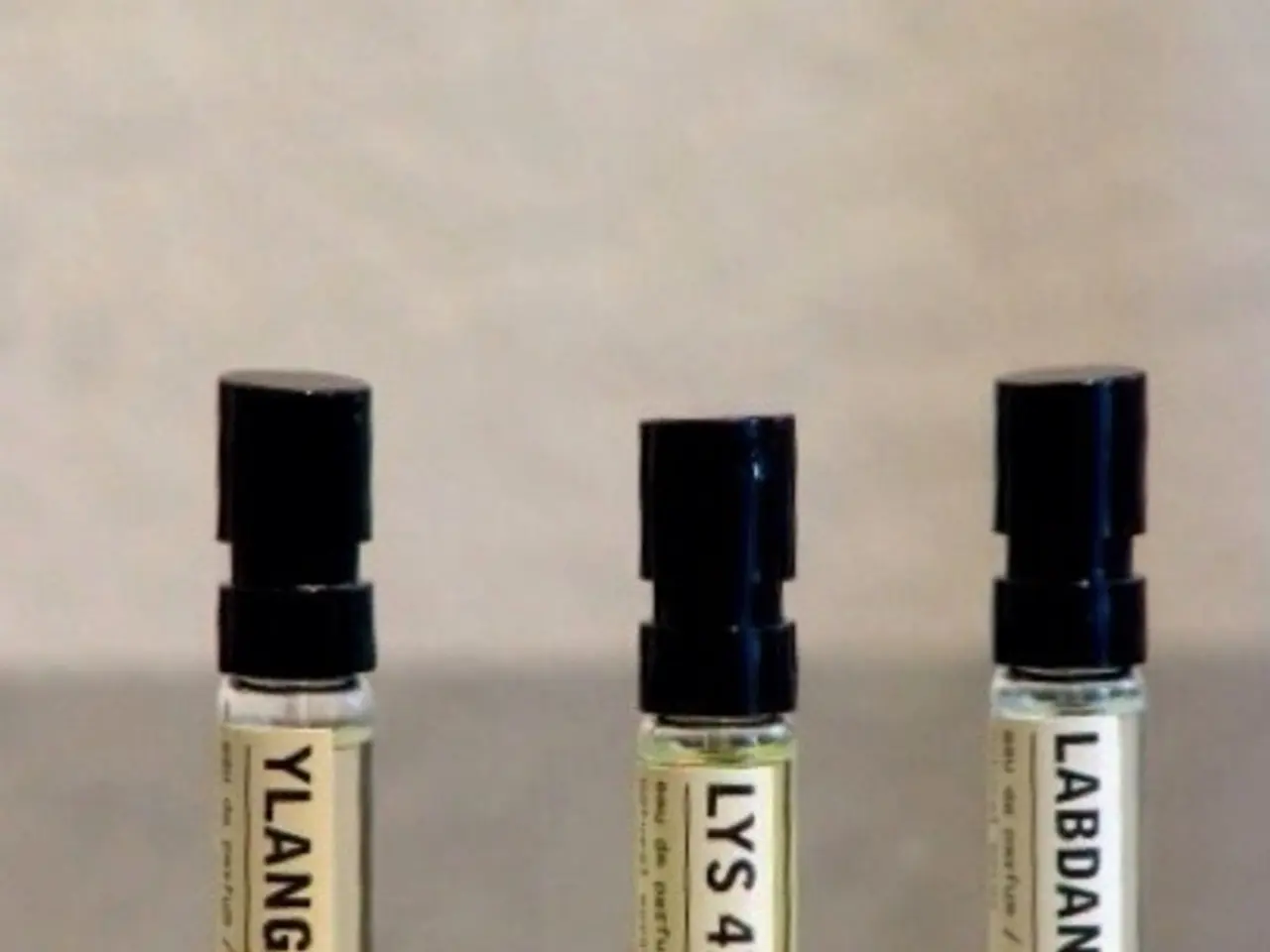Men's pheromone-based fragrances are generating buzz on TikTok. However, the question remains: do they truly yield results?
In the realm of personal grooming, a new trend has emerged: pheromone perfumes. These fragrances, marketed as social enhancers, have been gaining traction among men who seek to boost their attractiveness and improve their social interactions. However, the effectiveness and safety of these products are a subject of debate.
James Ward, the psychotherapist and clinic director of DBT London, advocates for a different approach. Instead of relying on pheromone perfumes, he encourages building real, meaningful human connections through self-awareness, emotional intelligence, and interpersonal skills.
Pheromone perfumes come in various forms, such as aftershaves, colognes, and oils. They often contain ingredients like Iso E Super, which enhances natural magnetism, and traditional aromatic and woody notes like amber, musk, tonka bean, vanilla, patchouli, cedarwood, black pepper, and cardamom. These components create a masculine, appealing scent profile believed to influence attraction.
However, the claims made by manufacturers are not universally accepted. Dariush Alavi, a perfume critic, states that pheromone perfumes do not work as advertised. Alice du Parcq, a fragrance journalist, goes a step further, labelling the trend as 'bullshit,' asserting that the sensorial effects have nothing to do with pheromones.
A 2008 experiment showed that women given a specific kind of pheromone found some men more attractive. However, no scientific evidence has proven that pheromone perfumes directly increase desirability or enhance sexual attraction. The biology behind pheromone perfumes makes sense to an extent, but the supporting evidence is limited.
James Preece, a dating coach, acknowledges that factors such as individual variability, placebo effects, and psychological factors can influence perceived results with pheromone perfumes. He advises caution, suggesting that they might not be as effective as advertised.
Excessive use or exposure to strong fragrances might trigger headaches, nausea, or dizziness in some users. Individuals with a history of allergies or sensitivity to fragrances should exercise caution when using pheromone perfumes. Side effects may include skin irritation, allergic reactions, or respiratory discomfort in sensitive individuals.
It's advisable to consult a GP or healthcare professional before using pheromone perfumes as part of a daily routine. Lizzie Ostrom, the creative director at Diem Scents, suggests that the scent from one's body holds important information and should not be washed off before a date. Instead, she recommends experimenting with different scents to find what synergizes best with the user.
In conclusion, while pheromone perfumes may hold a certain allure, their effectiveness in enhancing attraction and social interactions is questionable. Instead, focusing on self-awareness, emotional intelligence, and interpersonal skills may yield more substantial and meaningful connections. It's always crucial to prioritise personal health and safety when considering new personal grooming products.
Read also:
- Dubai's Health Sector Achieves Worldwide Acclaim with Epic Gold Stars Level 10 Certification
- Nutrition Deficiency: Identification, Signs, and Remedies
- Dietary Guideline for a Week: Weekly Meal Suggestions with Anti-Inflammatory Recipes
- Revival Opportunities: Underlining the Imperative of Children's Organ Transplantation





